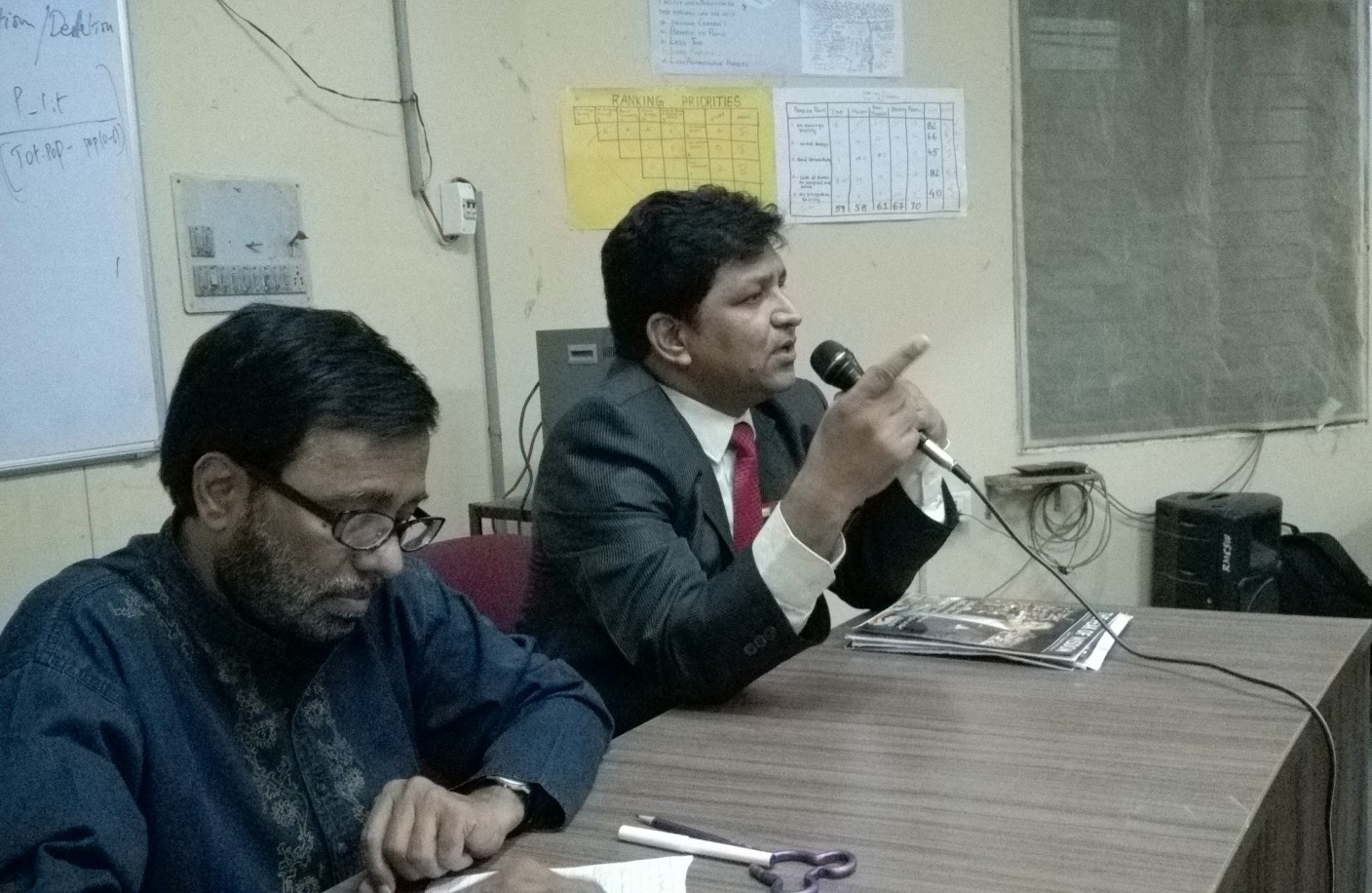In many countries, the ICT sector is no longer marginal.
André-Michel Essoungou
For 48 long hours employees of Senegal’s National Telecommunications Company cut telephone and Internet connections to the rest of the world. That bold action, in August 2010, was meant to force the government to back down on a plan to grant a US company exclusive rights to manage incoming international phone calls.
Whatever the specific issues in the dispute (which were later resolved when Senegal’s market regulatory body annulled the US company’s contract), the two-day shutdown itself sent immediate shock waves throughout the Senegalese economy. Dozens of institutions were affected: banks, travel agencies, customs offices, call centres, calling card vendors, the airport, the harbour…. Newspapers ran angry editorials. “Our economy lost CFA50 bn,” or US$100 mn, one headline complained.
Since Senegal is an important regional hub, communications in two neighbouring countries, Guinea and Mauritania, were also disrupted. “It is very sad this would happen as we celebrate 50 years of our independence,” a Mauritanian newspaper lamented. “It just goes to show how incomplete this independence is.”
The strong chain reaction prompted by the Senegalese crisis vividly illustrated just how important the information and communications technology (ICT) sector has become in Africa. It is not only a sensitive economic sector in its own right, but also a backbone for other sectors.
Unparalleled growth
Nascent only a decade ago in Africa, the ICT sector has been growing in recent years at an unparalleled pace. In some countries, various studies note, the “information economy” is becoming one of the main drivers for economic growth more generally.
In 2009 South Africa’s ICT sector generated $24.2 bn and contributed more than 7 per cent to the country’s gross domestic product (GDP), according to a report by Hot Telecom, a consulting firm. That same year Tunisia’s ICT sector contributed 10 per cent to the country’s GDP. In Tanzania its share reached 20 per cent of GDP. Everywhere on the continent, the ICT sector is expanding rapidly. Annual ICT revenues are now estimated at around $50 bn.
Investments in Africa’s mobile phone segment, the continent’s dominant ICT category, have grown from $8.1 bn in 2005 to almost $70 bn today, reports the UN’s International Telecommunication Union (ITU). Mobile phone operators have become major sources of tax revenue for African governments. They average 7 per cent of tax receipts and in some countries comprise the single largest category of taxpayers, according to the GSM Association, which represents mobile operators worldwide.
‘Ongoing success story’
Behind this trend lie three major changes over the past decade. The first was Africans’ unexpectedly fast adoption of ICT services. In 2000, 11 million people in Africa had mobile phones. Five years later the number had grown to almost 200 million, and now it is fast approaching 400 million.
The pace of mobile phone adoption in Africa has defied all predictions. Cellular phone penetration on the continent is an “ongoing success story,” comments an ITU report.
This trend stems from “our peculiar calling habits,” jokingly remarked Charles Onyango-Obbo in an opinion article in the Daily Nation newspaper in Nairobi, Kenya. He was referring to the interminable phone conversations Africans tend to have, despite the high price of calls.
There also has been steady growth in Internet access on the continent, from 3 million users in 2000 to more than 100 million in 2010. This upward trend will continue, as Africa literally becomes more closely wired to the rest of the world with the construction of a series of undersea cables (see Africa Renewal, October 2007). In the process, Africans became world leaders in “mobile web” technology — Internet access through mobile devices (see Africa Renewal, December 2010).
Also revolutionary is the extent to which ICT now supports other economic sectors. Stock exchanges in Johannesburg, Nairobi, Lagos and Abidjan cannot function without these technologies. They make banking easier and accessible to more people, allow faster and more efficient medical assistance and are increasingly being used to help advance people’s political participation.
Outside investors rush in
Beyond the popular adoption of new information technologies, a second major change has also contributed to ICT economy’s rapid growth: the rush to Africa of foreign investors attracted by the sector’s high profit margins.
In 2008 Britain’s Vodafone, the world’s largest mobile operator in terms of revenue, started an African shopping spree in Ghana when it acquired 70 per cent of Ghana Telecom for $900 mn. It has since made its way into Egypt and Kenya, and has become the majority owner of South Africa’s Vodacom. Sub-Saharan Africa is officially one of the company’s three main markets.
Last year France Télécom announced plans to invest more than $8.8 bn in Africa and the Middle East. Previously limiting itself to Francophone African countries, the operator has now extended its presence in Africa much farther, including to Kenya.
Most notable among foreign investors in Africa’s ICT economy, however, is Bharti of India. In March 2010 Bharti’s aggressive search for a continental presence led it to acquire the African assets of Kuwait’s Zain for a record $10.7 bn.
This frenzy of acquisitions is a sharp change from the past. A decade ago, only a handful of African businesspeople and companies saw opportunities in the continent’s changing landscape. Sudan-born Mohamed Ibrahim launched the Celtel mobile phone network, and for years his company shared much of the African market with South Africa’s MTN and Vodacom.
No more. And even though returns on investments in the region’s ICT sector are now less than they once were, they still remain attractive to Western companies struggling with stagnant markets and low profits in Europe and North America. Five years ago in Africa “it took half a year to recover investments in infrastructure for new clients,” says Marc Rennard, head of France Télécom’s African and Middle Eastern operations. “Now it’s more than two years. But that’s still pretty good.”
Regulatory reform
The third of the major changes is that the policies and institutions needed to help Africa’s ICT sector reach its potential are finally catching up. “Telecommunication growth has been encouraged by the easing of regulatory restrictions by African governments and increased liberalization across the market,” says a report by the international accounting and business services firm Ernst & Young.*
Moving away from previous state-owned and monopolistic models, most African governments have opened up their mobile phone and Internet markets to competition and to private investment. Then they started setting up regulatory authorities to oversee the burgeoning sector. Their powers usually include arbitration and the issuing of licences.
As governments devised more comprehensive multi-year plans for ICT development, such national regulatory agencies became more central players in facilitating wider access to information technologies. In Kenya, where Parliament adopted an ambitious plan to transform the country into a regional ICT hub, the national regulator recently asked operators to extend coverage to rural areas in exchange for reduced licensing fees. It also required them to bring down their charges for mobile phone banking.
Rwanda, Egypt, Tunisia, Kenya, South Africa and the Seychelles are among the countries that have adopted ambitious ICT plans with a view to developing their knowledge-based economies. Long known for its abundant natural resources, Africa is witnessing the rise of a sector that only a few initially thought could thrive.
Source: Africa Renewal









